Silas Busch, Frank Gao, Sandra Park and Gregory Valdespino and Germán Villegas-Bauer have been named the 2021 winners of the Wayne C. Booth Prize for Excellence in Teaching, awarded annually to University of Chicago graduate students for outstanding instruction of undergraduates.
Prize recipients were selected on the basis of nominations from students in the College. The prize itself was established in 1991 in honor of Booth, PhD’50, the late UChicago faculty member who was one of the 20th century’s most influential literary critics.
In addition to the Booth Prize, five faculty members were recently awarded the Llewellyn John and Harriet Manchester Quantrell Awards and four instructors received the Glenn and Claire Swogger Award.
Learn more about this year’s Booth Prize recipients below:
Silas Busch, Department of Neurobiology
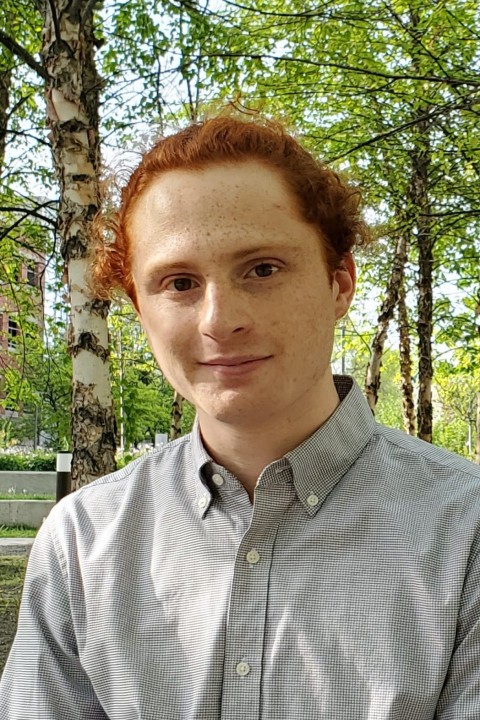
Before coming to UChicago, Silas Busch earned bachelor’s degrees in biology and philosophy from Bard College. Now a doctoral student in neurobiology, Busch works in Prof. Christian Hansel's lab investigating how individual neurons and whole neural circuits function to encode learning and memory in mice.
Passionate about the intersections of neuroscience and philosophy, Busch helped Prof. Peggy Mason develop and teach a new undergraduate course entitled, “Ethics Through a Neurobiological Lens.” The course took an experimental philosophy approach to ethical topics inspired by neuroscience research, such as how to define death and the ethics of neuroenhancement, the targeted improvement of cognitive abilities.
For Busch, teaching undergraduates has transformed the way he understands his research.
“The fearlessness of my students is inspiring,” Busch said. “They have been unafraid to take a stance on an issue, to challenge others respectfully, and—most impressively—to change their position.”
“Across subjects, memorizing material only goes so far. You have to be willing to express ideas, be wrong, and learn from others through conversation,” Busch added. “Learning is quite experimental in that way, and a creative blend of scientific and philosophical approaches can be applied to so many scholarly pursuits.”
Frank Gao, Department of Chemistry
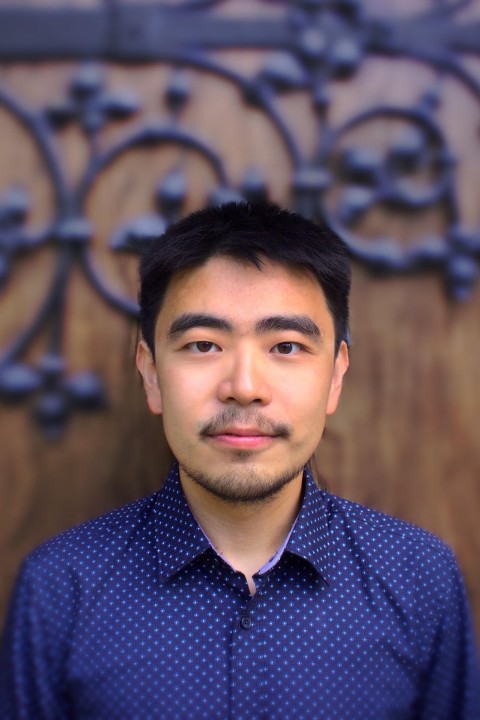
Born in Beijing, Frank Gao spent his childhood and undergraduate years in California before becoming a doctoral student in chemistry. He previously taught a year-long sequence of courses for “Comprehensive General Chemistry,” which explores topics such as physical chemistry, inorganic chemistry and quantitative analysis.
When teaching challenging scientific concepts, Gao encourages collaboration and interdisciplinary thinking among his students.
“I try my best to connect the concepts to applications in bioengineering and material science,” he said. “As research is becoming increasingly interdisciplinary, keeping an open mind to ideas from other disciplines not traditionally associated with one’s main area of training will allow more innovative projects to be developed.”
As an undergraduate at University of California, Berkeley, Gao studied biosynthetic chemistry and theoretical chemistry. Now, he aims to combine elements from statistical mechanics and single-cell biology to understand how cells differentiate.
“I enjoyed interacting most with my students who are some of the most talented and driven individuals I have met,” said Gao. “They are constantly trying to improve academic performance, develop a deeper understanding of course material and become more comprehensive scholars.”
After completing his Ph.D., Gao hopes to continue teaching chemistry and inspire students in underserved communities to pursue scientific research.
Sandra Park, Department of History
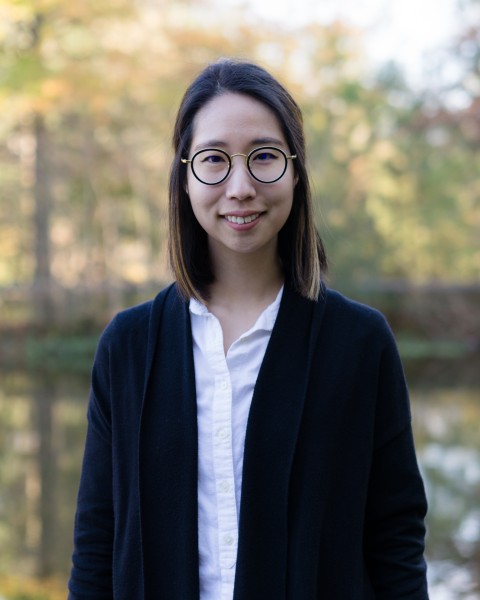
A graduate of the College, Sandra Park, AB’13, specializes in religion and politics in modern Korea, East Asia and the transpacific U.S. empire. As a doctoral student in history, Park has previously been a teaching assistant for China- and Korea-focused courses in the “Intro to East Asian Civilizations” sequence. She is currently teaching a self-designed course on the Cold War, religion and religious freedom in East Asia as a graduate lecturer for the Pozen Family Center for Human Rights.
In each of her courses, Park has drawn heavily from primary sources to help students engage with the subject. “And I learn from my students, who help sharpen my own framing of these sources with their incisive questions,” she said.
“I enjoy fostering critical thinking in my history courses,” Park added. “Many students arrive with an understanding of history as a descriptive narrative, but I like to encourage students to ask generative questions that disrupt dominant understandings or explore gaps in the literature.”
Park’s research examines Christianity and citizenship in wartime South Korea. Her dissertation focuses on North Korean refugees and prisoners of war who sought South Korean citizenship during the Korean War.
“I encourage my students to sharpen their argument-driven and evidence-supported writing so that they can carry these tools to other classrooms and beyond the University,” Park said. “I hope that by the end of the term, my students feel more empowered to draw on these skills in a variety of contexts.”
Gregory Valdespino, Department of History
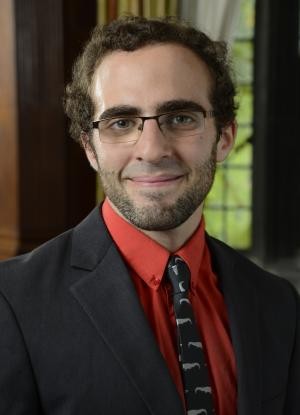
A doctoral student in history, Gregory Valdespino focuses on the modern history of France and West Africa. This winter, Valdespino taught "Home and Empire: From Little House on the Prairie to Refugee Camps," a course about the global history of imperialism and domestic life since the 18th century.
Valdespino’s passion for researching and teaching history has only grown since he began his graduate education at UChicago.
“I've really enjoyed UChicago students' curiosity and their enthusiasm for exploring complex ideas with me and their fellow students,” Valdespina said. “I've consistently had classes where students push discussions far beyond what I expected, helping me see texts I've read several times in a new light.”
Valdespino is particularly interested in public history—historical work directed at audiences outside of academia—and has worked with Chicago-based organizations involved in historical research, including the Haitian American Museum of Chicago and the French Heritage Society of Chicago.
“I believe that bridging the divide between academia and the general public is vital to making historical research that helps people understand their relationship to the past and imagine the kinds of futures they want to create,” Valdespino said.
Germán Villegas-Bauer, The Kenneth C. Griffin Department of Economics
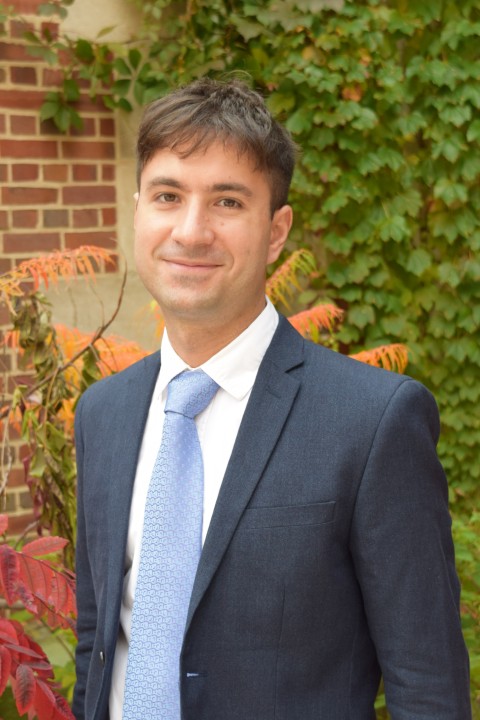
Germán Villegas-Bauer knows that a subject like microeconomics can be a challenge to learn. While teaching “The Elements of Economic Analysis II,” Villegas-Bauer makes sure to encourage participation and use real-life examples to explain challenging concepts.
“I try to use intuition as much as possible, instead of just mathematical formulas, to explain abstract concepts and economic behaviors from real life. I highly encourage students to think that way, and I prepare my exams with that in mind.” he said.
Originally from Buenos Aires, Argentina, Villegas-Bauer arrived at UChicago to pursue a Ph.D. in economics. For his research, he has investigated a number of topics within political economy and finance.
“In one paper, I analyzed how the change in the electoral system in Argentina affected electoral outcomes,” said Villegas-Bauer. “In another, I used textual analysis to compute the sentiment of speeches by firm managers and I investigated how they affect stock returns.”
After he graduates this year, Villegas-Bauer will work for the International Monetary Fund, where he will help countries implement better macroeconomic policies.
“Argentina has had tons of macroeconomic crises,” he said. “Because of that, I have always been interested in better understanding them and in designing policies to help economies avoid them, grow and develop.”